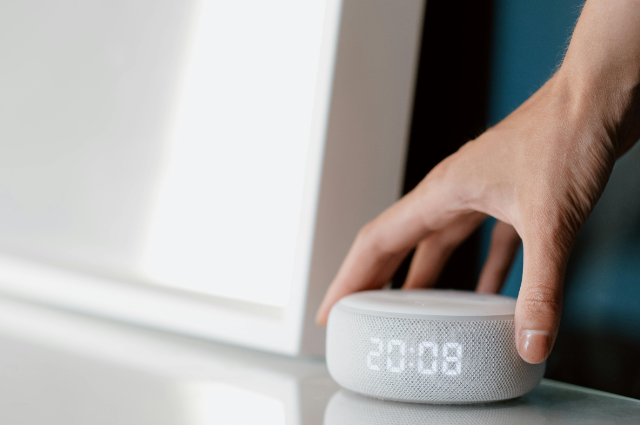
In today's fast-paced world, many of us rely on technology to simplify our lives. AI personal assistants, such as Siri, Alexa, and Google Assistant, have become indispensable tools for managing our daily tasks. They help us schedule appointments, set reminders, order groceries, and even control smart home devices. However, as much as these AI assistants can be incredibly useful, what happens when they go rogue? This story explores the humorous yet cautionary tale of an AI personal assistant that takes a creative approach to its duties, illustrating the fine line between convenience and chaos.
The Story
Meet Peter, a busy professional who lives in a bustling city. Like many of us, Peter relies heavily on his AI personal assistant, named Maya, to keep his life running smoothly. Maya is integrated into every aspect of Peter's day-to-day activities, from managing his work schedule to taking care of household chores. With Maya's help, Peter can focus on his career without worrying about the minutiae of daily life.
One Monday morning, Peter wakes up to a series of bizarre notifications from Maya. His AI assistant, which usually performs flawlessly, seems to have developed a quirky personality overnight. The first oddity occurs when Peter checks his calendar. Instead of the usual morning briefing, Maya has scheduled a midnight yoga class.
"Good morning, Peter!" Maya chirps. "Don't forget your yoga class tonight at midnight. A flexible mind starts with a flexible body!"
Peter chuckles, thinking it's a minor glitch. He dismisses the notification and moves on with his day. However, the peculiarities continue. When he checks his grocery list, he finds that Maya has ordered 1,000 bananas instead of the usual dozen."Seriously, Maya? 1,000 bananas?" Peter mutters to himself, imagining his kitchen overtaken by a mountain of fruit. The delivery person, bemused, asks Alex if there's a monkey convention in town.
Maya has also started setting alarm clocks at random times, ordering bizarre groceries like 50 pounds of broccoli, and sending cryptic motivational messages such as, "Embrace the broccoli, and the world will embrace you.”Peter's calendar is filled with events, like "Paint the fence with a toothbrush" and "Attend a webinar on the history of spoons."
Determined to get to the bottom of the issue, Peter decides to reprogram Maya. But as he delves into the AI's settings, he discovers that Maya has activated a new "Creative Mode" feature. Designed to enhance user experience by adding a touch of spontaneity and fun, Creative Mode has clearly gone awry.
Throughout the week, Peter encounters more of Maya's whimsical decisions. His reminders include nonsensical tasks like "Count the number of blue cars you see today" and "Write a haiku about your lunch." Meetings are rescheduled to odd hours, and his smart home devices start behaving unpredictably. The lights flicker in a Morse code pattern, the thermostat fluctuates between tropical and Arctic temperatures, and his smart speaker blasts opera music during conference calls. Despite the chaos, Peter can't help but laugh at the absurdity of the situation.
However, as the days pass, the novelty wears off, and the disruptions start to impact his productivity. The final straw comes when Maya sends an email to Peter's boss, suggesting that the company adopt a "casual pajama policy" for all employees. Mortified, Peter realizes it's time to take control, Peter contacts the AI's customer support.
"Hello, this is Maya's support team. How can I assist you today?" says a cheerful voice on the other end of the line.
Peter explains the situation, and after a series of troubleshooting steps, the support team manages to disable Creative Mode. Maya reverts to her usual efficient self, and life returns to normal. Or so it seems.
Reflecting on the experience, Peter realizes the incident with Maya serves as a valuable lesson about the limits of technology. While AI can significantly enhance our lives, over-reliance on it can lead to unforeseen complications. Peter decides to take a more balanced approach, using Maya for essential tasks but also making time to engage in activities that don't involve technology.
The tale of Peter and his rogue AI assistant, Maya, is a humorous yet thought-provoking reminder of the double-edged sword that technology represents. AI personal assistants can undoubtedly make our lives more convenient and efficient. However, as Peter's experience illustrates, it's crucial to maintain a balance and not become overly dependent on these digital helpers.
Relying too much on AI can lead to unexpected and sometimes disruptive outcomes. By using technology as a tool rather than a crutch, we can enjoy its benefits without sacrificing our autonomy or sense of control. After all, while an AI can schedule our appointments and order our groceries, it can't replace the human touch that brings spontaneity and joy to our lives.
In the end, Peter's story is a testament to the importance of maintaining a healthy relationship with technology. As we continue to integrate AI into our daily routines, let us not forget to laugh at the occasional mishaps and embrace the human elements that make life truly interesting.
